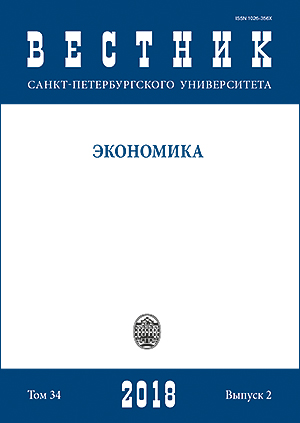A circular economy perspective on sustainable supply chain management: an updated survey
DOI:
https://doi.org/10.21638/11701/spbu05.2018.204Аннотация
Социально-экологические последствия развития мировой экономики привлекают возрастающее внимание общественности на глобальном уровне. Общество ожидает от бизнеса ответственного отношения к окружающей среде и ее ресурсам, а также к людям для достижения целей устойчивого развития. Цепи поставок, рассматриваемые в качестве существенного звена современной экономики, представляют собой сети взаимосвязанных компаний, которые создают и доставляют продукты и услуги конечным потребителям. Авторы статьи предлагают классификацию исследований в области устойчивого управления цепями поставок и дают обзор научных работ в контексте циркулярной экономики, предметом которых являются так называемые замкнутые цепи поставок. На основе проведенного анализа представлена обновленная классификация работ в этой научной области, при составлении которой использован подход к структурированию исследований, первоначально предложенный А. Атасу и соавторами в 2008 г. В работе дано описание методов аналитического моделирования и поддержки принятия решений, используемых в научной литературе и на практике, а также приведены полученные с их помощью выводы. Среди источников литературы предпочтение отдается исследованиям, реализующим интегрированный подход к управлению замкнутыми цепями поставок путем решения задач проектирования и координации цепей поставок, в том числе с учетом операционных аспектов управления. Авторами выявляются взаимосвязи между возникшими с течением времени новыми направлениями исследований, а также обозначаются перспективные области анализа
Ключевые слова:
управление цепями поставок, замкнутые цепи поставок, ремануфактуринг, устойчивость
Скачивания
Библиографические ссылки
References in Latin Alphabet
Translation of references in Russian into English
Загрузки
Опубликован
Как цитировать
Выпуск
Раздел
Лицензия
Статьи журнала «Вестник Санкт-Петербургского университета. Экономика» находятся в открытом доступе и распространяются в соответствии с условиями Лицензионного Договора с Санкт-Петербургским государственным университетом, который бесплатно предоставляет авторам неограниченное распространение и самостоятельное архивирование.







